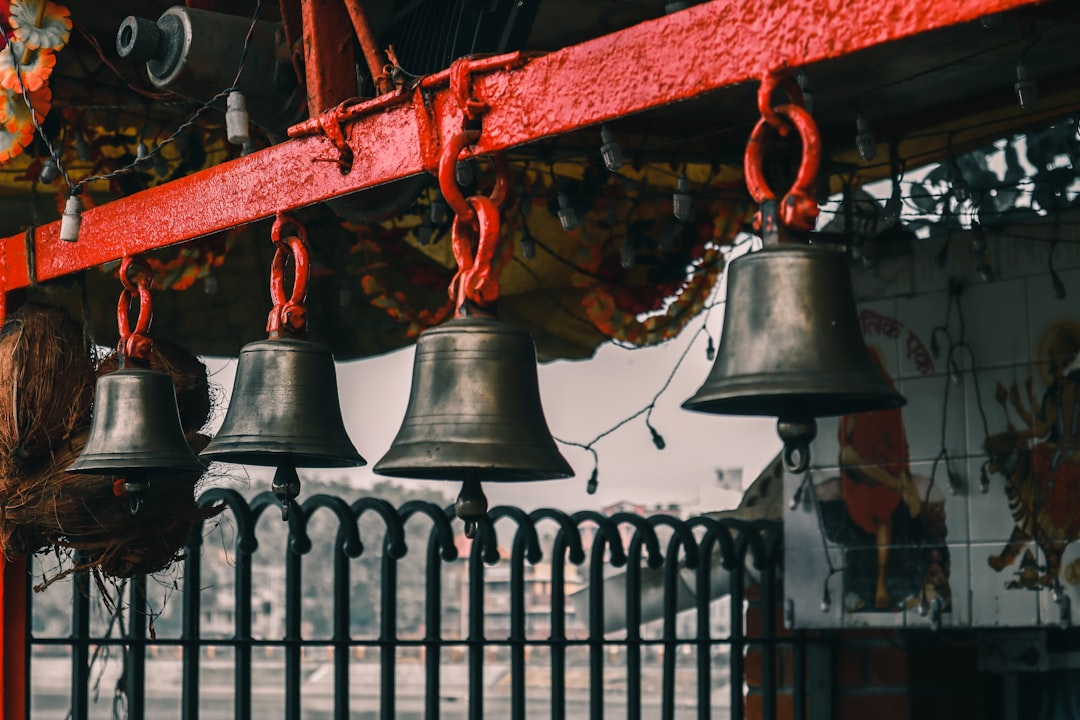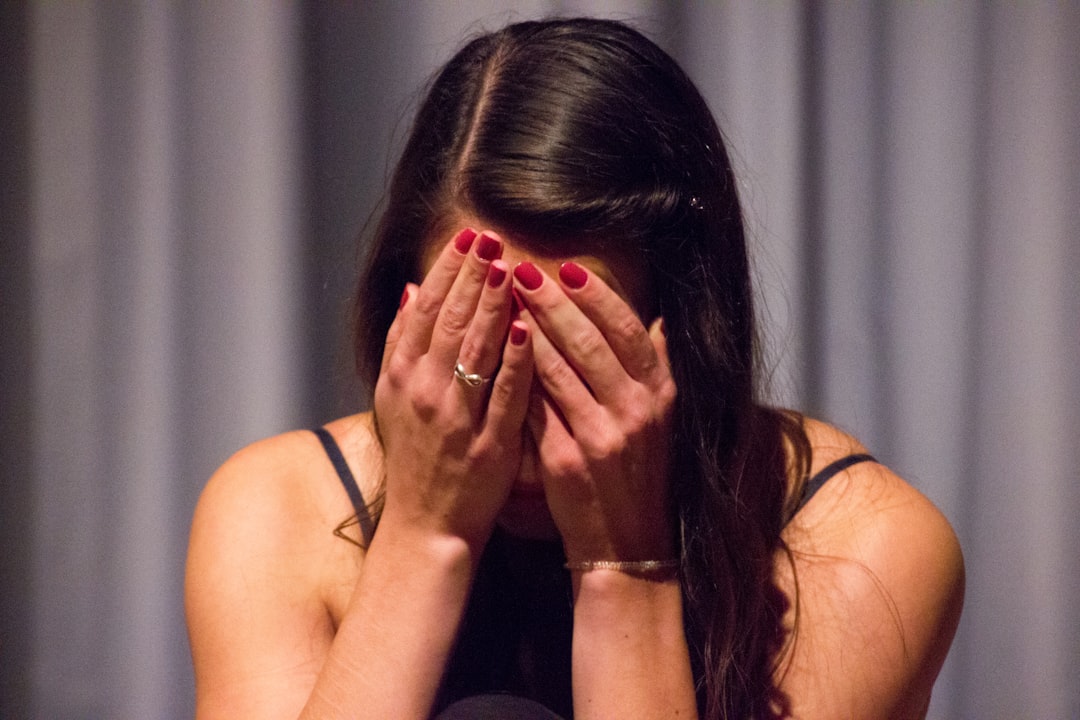I've Been Re-exploring My Relationship with Religion
The timing of the call was uncanny.
Not two weeks after I resigned from my last job, an old freelance vendor reached out. He needed a writer to help refine the website copy for one of his clients.
I don’t know why I said yes. I thought it would be funny.
That’s because I’d seen the client before, when I was eleven or twelve. Or rather I’d seen the person the client represented, wearing bright orange on television. My grandmother used to watch him on religious channels, preaching to a crowd of thousands.
People like him were irritants in my life, because when my grandmother wanted to watch TV, that meant I couldn’t watch Cartoon Network.
Now in the present day, I somehow found myself studying that person in great detail so I could write the copy for a website. It started with a three day sponsored trip to one of his townships.

I grew up bi-religious. On one hand, my family identifies as Hindus — we perform pujas to Lakshmi, she who brings wealth and prosperity, and her son Ganesh, he who removes obstacles.
On the other hand, all my education has been in Catholic institutions. I grew up reading parts of the Bible, and I’ve always been attracted to Christian media. I spend most of my day listening to American and British channels on YouTube.
In between conservative Christian education and conservative Hindu family, I started to identify as an atheist around the age of thirteen.
The township was bigger than I expected - it certainly wasn’t an ashram.
I got to spend some time walking through their facilities and learning its beautiful history. They also showed us the regular seva that is done at the township and the charitable practices they have. Perhaps the most impressive thing was the hospital that was completely free of charge, from diagnostics to medicine to larger treatments.
I had been very ill at the end of my last job and the long travel wasn’t helpful. But working on the project was a good excuse for me to get out of my own head and focus on helping someone else and performing my own seva.
We were given meals and rooms - all quite austere in keeping with the spirit of seva, but very satisfactory. I spent most of my three days either sleeping or working in an office.
Outside of the context, there was nothing religious about the project itself.
It wasn’t strange at all for me to see religious ceremonies performed all around me growing up. My grandmother’s room had a two-tiered shrine dedicated to several gods - primarily idols of Ganesh and his mother Lakshmi, but also photos of Hanuman and Krishna, among others. A worship service (puja) was performed twice daily.
Everyday, the first plate of food for each meal (bhog) was offered to the idols of the gods we kept at home. After the gods had “eaten”, we could all eat.
Beyond the daily, it was normal for us to have purification fires (havan) performed once a year, and for us to go visit our cousins when they were getting theirs done. Regular larger singing prayer services (kirtan) and pujas were occasions to meet the family.
Even travel was occasionally religion-flavored, with entire trips dedicated to visiting famous temples across India.
My favourites though was Diwali, our biggest festival of the year, but more for my mom’s awesome cooking than anything else, and Durga Puja (or Pujo, as my Bengali friends say), which as a true Kolkata boy meant pandal-hopping - visiting various popup temples dedicated to the mother goddess. Happy Pujo to all who celebrate!
In studying the subject of the website, I worked closely with two of his disciples who worked in the marketing division for the foundation. We ate meals together and sat together working on the website in an office room for several hours in a go.
It was actually quite nice getting their opinion on the faith and how they interpreted the world. They were very sweet to me, and I had no complaints about how I was treated. More than anything else, it was working with the two of them that made me want to write this story.

Meanwhile on the Christian side of things, shame was my entire lifestyle. Corporal punishment was phased out of the schooling system when I was young, but the systems of shame that form the foundation of it are alive and healthy even today.
The thing I picked up most from Christianity was that everything is my fault, and God, the one true god, who knows all and loves all, loves me too but only if I follow all the rules perfectly.
Our school had a chapel, and I always wanted to go in there, and I never did, because I thought I wasn’t allowed in there because I wasn’t Christian.
Corporal punishment was one of the hallmarks of Catholic education all over the world, but was phased out by the time I entered the system. The only time I ever saw a child being caned was in 1997, when I was 5 years old.
The memory of looking out of the classroom door to see the senior priest/principal whooping a kid’s ass with a wooden walking stick isn’t just seared into my memory, but into some of my friends’ as well.
It put the fear of God in me, as intended, though here “God” was just the litany of authority figures I met during my schooling. Caning was out, but I took plenty of wooden rulers on my palm during my primary school, and once on my calves when I was 7 for shuffling my feet during prayer.
If it wasn’t clear, most of my trauma comes from my school life. I still have nightmares that are squarely based in my schooling.
Why atheism - the unsatisfactory explanation of death in religion

I’ve identified as an atheist ever since middle school. I personally found no comfort in a higher power, and given my life at the time, I had no reason to believe that the gods or the Christian God were as described. I felt lied to.
Because here’s the thing. Christianity describes its God as all-knowing (“omniscient”), all-loving (“omnibenevolent”), and all-powerful (“omnipotent”), which cannot all be true. Child mortality is a thing - 5 million newborns die every year. God either doesn’t know about it (not omniscient) or doesn’t care enough to fix it (not omnibenevolent), or cannot directly intervene in it (not omnipotent).
In the Christian system, there is one life, and at the end of it you either enter heaven, are purified in purgatory, or are condemned to hell. The metric of judgment is how well you lived your life according to Christian ideology. But newborns haven’t lived a life, so what are they judged by? Experts usually have nothing to offer except “God works in mysterious ways.”
The Hindu system has a slightly better explanation. In this system, life is a cycle of rebirth, and living a virtuous life (which you can do in a number of ways) leads to moksha / mukti, liberation from the cycle.
I asked various family members about infants dying, and they said that it’s probably to wipe out karmic debt from previous lives, and then they can be reborn.
But I don’t know; that sort of scale-balancing with life doesn’t leave a good taste in my mouth.
However, I describe myself as a “non-combative atheist”, which means that I don’t personally believe in God, but I have no problem with someone else doing so.
Because what is religion? It’s nothing but a system of rules to live your life by. It’s a coping mechanism against entropy; the idea that there is a divine plan for us is obviously comforting. To suddenly feel that there is no inherent meaning would be terrifying.
Side note: In my teenage years, there were plenty of guys around me who were vocal fans of Richard Dawkins, simply because he was loudly anti-religion. I never got it, it never appealed to me, and now that Dawkins has revealed himself to be a transphobe, I’m glad my instincts were right.
My new relationship with religion
Ultimately, it is a fallacy to think of Christianity and Hinduism as monolithic religions. In practice, Christianity and Hinduism don’t exist - they are broken up into hundreds of sects, subcultures, and splinter groups, all with their own interpretations of the Bible or the Vedas.
It’s also a fallacy to think that one religion is suitable for the entire world, which unfortunately proponents try to do. The world is way too big and too diverse for any one religion to suit everybody.
On top of that, my biggest blocker is that I’m a forward-looking person. I don’t want to rely on words from thousands of years ago to tell me how to live my life, because life is different than it was thousands of years ago.
The only way for me to see the value of these books is to see their practitioners behave with grace, which can be hit-or-miss.
Religion as we know it - as a system of behavior - is personally not for me. However, as stories, religion is so rich in its fabric. It is world-building to its core. It starts at the beginning and explains how things are.
There is so much storytelling potential that comes from building your own pantheon of gods and building stories around them. Being Indian, I’ve had the good fortune of being surrounded with incredible art from several major religions of the world that all serves as inspiration for my own storytelling.
I play Dungeons and Dragons, and other TTRPGs, and it is incredibly satisfying to create creation mythos of characters based on gods that rule my fantasy world of Zemera. It is a disservice for me to not study my roots to use in my creative endeavors.
Going forward, I remain a “non-combative atheist” but I no longer roll my eyes at religious stories, because in them lies the potential to say something new, and that is a gift given to me by those around me, which I humbly accept.



So many beautiful ideas and thoughts in this piece! Having grown up in a religious yet liberal household, some of our experiences are different but I still identified with most of what you have said. Non-combative atheism is definitely a term I am taking away with me. I will be using it as a descriptor for my religious beliefs from now on!